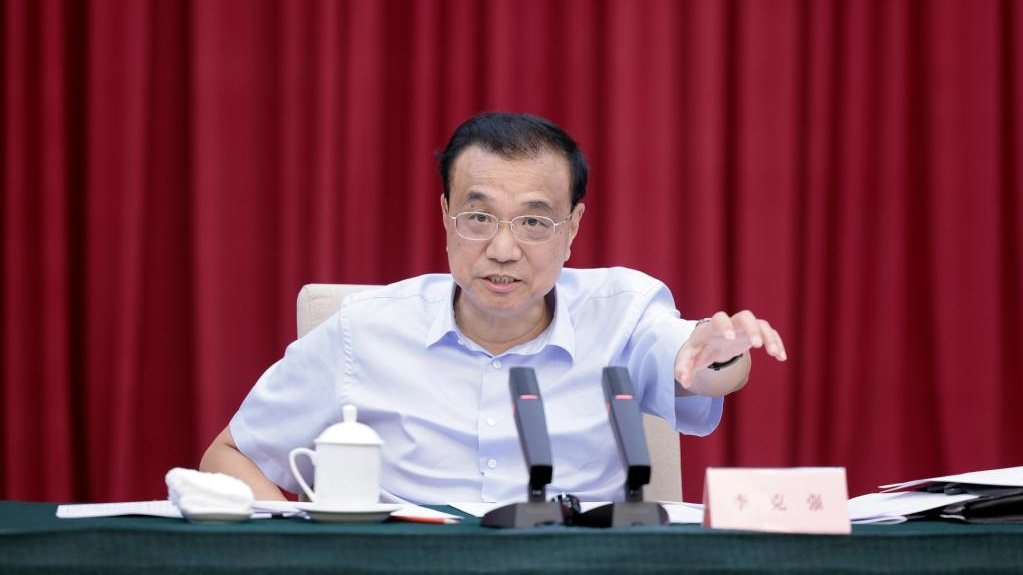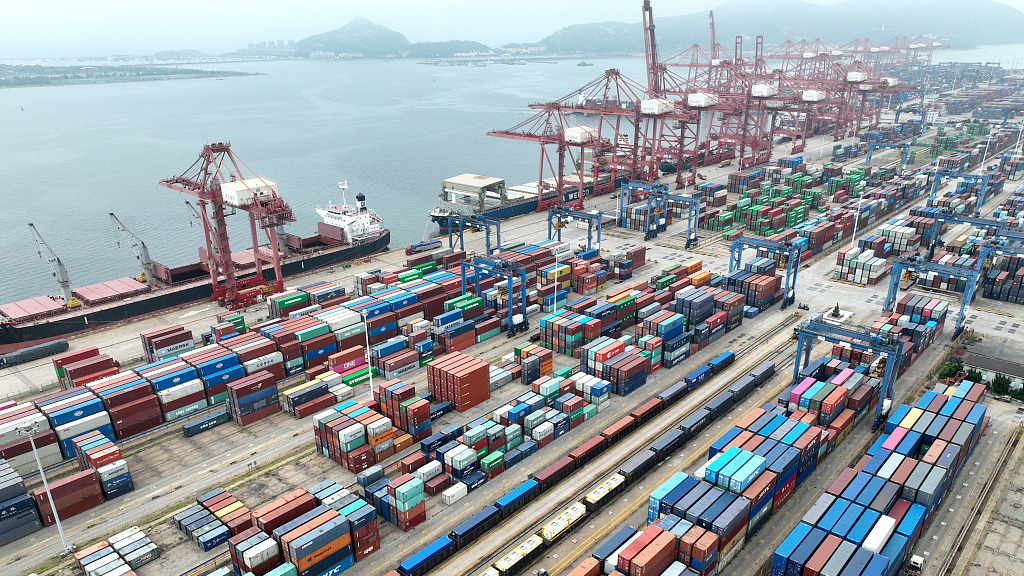
Chinese Premier Li Keqiang presides over a symposium on the economic situation in Shenzhen, south China's Guangdong Province, August 16, 2022. /Xinhua
Chinese Premier Li Keqiang presides over a symposium on the economic situation in Shenzhen, south China's Guangdong Province, August 16, 2022. /Xinhua
Chinese Premier Li Keqiang on Tuesday urged six major provinces to take a key role in stabilizing the national economy.
Li, member of the Standing Committee of the Communist Party of China Central Committee Political Bureau, made the remarks in Shenzhen while presiding over a symposium on the country's economic situation. Officials of six major economic provinces – Guangdong, Jiangsu, Zhejiang, Shandong, Henan and Sichuan – spoke at the meeting in person or via video link.
Despite "an unexpected shock" in the second quarter, China's economy stabilized and rebounded in June, said Li during the video meeting with senior officials. The economy's recovery trend continued in July, but slight fluctuations remain, Li said.
He stressed that the country must make efforts to shore up market entities, stabilize employment and prices, and guarantee people's livelihoods.
Noting that China's economy is in a critical stage of stabilization, Li urged for the adoption of a sense of urgency in the country's endeavors to consolidate recovery momentum.
The country should fully implement the new development philosophy and coordinate epidemic prevention and control alongside economic and social development in a highly efficient way, Li said.
The six provinces contribute to 45 percent of the country's total economic output, Li said, calling the provinces the pillars of the country's economic development while urging them to take a key role in stabilizing economic growth.

Containers are seen in a port in Lianyungang, Jiangsu Province, China, August 10, 2022. /CFP
Containers are seen in a port in Lianyungang, Jiangsu Province, China, August 10, 2022. /CFP
Li urged the economic powerhouses to ensure solid implementation of a package of pro-growth policies while leveraging policies to energize market entities, smoothen logistics, and stabilize industrial and supply chains.
The local governments should tighten their belts, put existing assets to better use, maintain a balance between revenue and expenditure, and guarantee fiscal spending in ensuring people's livelihoods, Li said.
Li urged efforts to ensure the stability of market entities in order to stabilize the economy and employment. Noting that the six provinces boast over 40 percent of China's market entities, which offer more than 40 percent of the country's job opportunities, he stressed on stepping up support for enterprises to tide over difficulties and resume economic vitality.
Measures should be taken to promote consumption in these provinces, each with a large population, Li said, urging for the boosting of big-ticket consumption, including auto consumption, while satisfying housing demand.
Li also called for ramping up financial support for localities with more qualified projects through special local government debts and policy-based and developmental financial instruments. He urged localities to accelerate the construction of mature projects to increase effective investment and related consumption.
He said that the six provinces should continue their explorations on reform, deepen reforms to streamline administration and delegate power, and further stimulate market vitality and social creativity.
Li also urged the six provinces to promote opening-up at a higher level and stabilize foreign trade and investment to realize mutual benefits and win-win outcomes.
(Source: Xinhua with edits)

